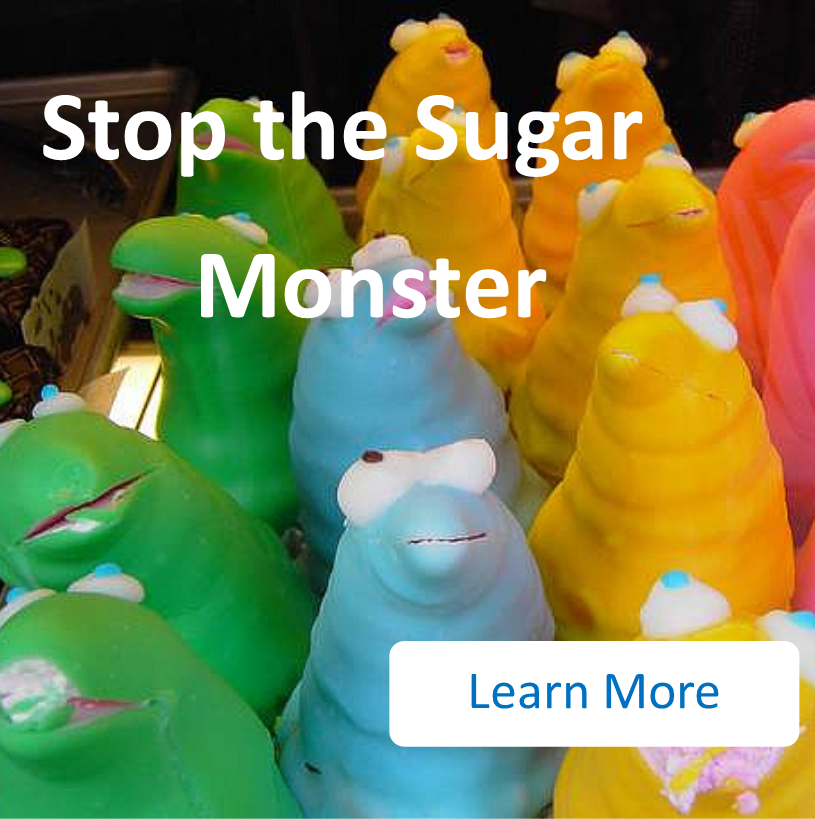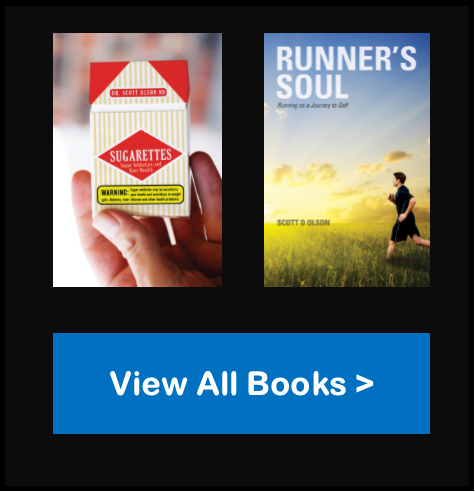Many people have questions about the 30 Sugar Free Days program, check here to find the answers to the most commonly asked questions.
Before the Challenge
How hard is the Program?
Most people say that the program is both hard and not that hard. The first few days are the worst and you might experience withdrawal symptoms including intense cravings, but once you are through those days, the program gets much easier.
As you start to feel better you have more than enough motivation to continue the program. It helps if you have friends who are also doing the program at the same time, become informed about the harm sugar is doing to your body, and include an exercise program.
Where do I find support?
The program comes with daily e-mails, a chance to connect with others on the group. The best support is support that you can find in your local area. Find friends or family who would like to join you or put up advertisements in community centers or churches asking people to join you.
Best way to prepare
The first day of the program is called “Cleaning Day” where you go through your house and get rid of all of your temptations. It is also good to find someone else going through the program and meet with them daily or weekly to discuss your progress.
Do I have to cut out all sugars?
There are different levels of commitment to the 30 Sugar Free Days.
The first level is for the most committed and it means no sugar and or foods that act like sugars (all grains, starchy veggies and some fruit). The other extreme are the people who are just removing added sugars. In between these two groups are people who are eating whole grains boiled (like the way we eat rice) and foods such as sprouted breads or, or grains that are low on the glycemic index. People who continue to eat foods that act like sugar run the risk of feeding of their sugar addiction (think how hard it is for a smoker to smoke only one cigarette a day), but it can be done.
The choice, of course, is up to you. Any step you take to reduce the amount of sugar in your life is good. The program is best if you can avoid all sugars and sugary foods.
Is this a low-carb diet?
No, this is not a low-carb diet. When people first hear about a program to remove sugar from their diet, they think that they have to go to the other extreme: eating mostly protein and fat. I suggest that you eat a diet that is 80 to 90 percent fruits and vegetables (heavy on the vegetables).
How much food can I eat?
You can eat as much as you want, as long as you are staying in the guidelines of the program:
* No Sugar
* No grains (foods that act like sugar)
* Eating 80-90 percent fruits and vegetables
Don’t worry about calories, read this post to see why: https://olsonnd.com/when-it-comes-to-weight-loss-forget-calories/
Best source for Glycemic Index information?
The best source of glycemic index information is this site: http://www.glycemicindex.com/ . Click on the DATABASE tab and then simply enter in a food you are wondering about.
Special Diets
I’m an athlete, can I really exercise without grains?
The best way to answer the question about whether you should be eating grains is for you to test it yourself. I personally believe that grains and simple sugars cause a lot of the diseases we all are expected to get in our lifetimes: diabetes, heart disease, obesity, cancer…
The 30 sugar free days is not a no-carb diet, it does include fruits and vegetables.
I would say that you try the 30 days without grains/sugars and when you finish, simply try eating wheat for a day and you will know if that grain causes you problems or they work for your exercise.
Having said that, people who are extreme athletes (Those who exercise over an hour at a time), do have extra needs. While there is no research in this area, I suspect that eating no-grain, no-sugar diet would actually benefit an athlete, but then you do need to make sure you are getting other forms of fuel during your long exercise bouts. Fruits are certainly an option. You can check out Brenden Braizer’s excellent book called for ideas on what to eat on the run that are non-grain based.
I also like for a fairly low sugar (but not sugar-free) exercise fuel. It is fairly easy to replenish the body’s glycogen (quick energy) stores by eating a diet that has no grains or sugars. Many foods that contain natural sugars are on the diet, including fruits and vegetables. The issue becomes when you are out for a long exercise bout and you run out of glycogen. Your body will then need to turn to your fat stores or you have to take in extra sugar when you are exercising in order to fuel your body. This is where you pay attention to your body and see if it is a problem for you and you lose energy (bonk) without taking any additional sugar in while you are exercising. Most people can exercise between 1 and 2 hours without needing to take on any extra fuel (notice that elite marathoners don’t usually use sport drinks).
I’m a Diabetic, can I do the program?
A diet that is free from sugars and foods that act like sugars can only benefit a diabetic and their blood sugar control. This may lead to problems, though, if you are on medication. I strongly suggest that you work in conjunction with your medical provider to see if you can adjust your mediation while you are going through the program. It is very dangerous to reduce the amount of sugar you normally take in your body and continue on medications that lower your blood sugar. While the body is harmed by high blood sugar, this damage occurs slowly over time, but low blood sugar is a life-threatening condition and you should monitor your blood sugar closely while going through this program.
Will this take care of my Candida?
This diet is a low-sugar and no-grain diet and, if you have Candida, you will certainly see your symptoms improve.
Will I lose weight?
This is a tough question to answer. Most people who follow this diet lose weight. In fact, they lose a lot of weight. By aligning your body with what it really needs, you will automatically lose weight. If your focus is on weight loss and are having trouble losing weight, check the Troubleshooting section below on this page.
Breastfeeding Mother?
This diet is a healthy diet and what is healthy for you is healthy for your child. Make sure to include plenty of fruits and vegetables and make sure you are eating enough.
I’m a vegetarian; can I still do the diet?
Most vegetarians are actually “grain-arians” and addicted to sugar and foods that act like along with the rest of us. Vegetarians can do the diet; in fact they may find it easier. I think we should eat a mostly vegetarian diet anyway. I recommend a diet of around 80 to 90 percent vegetables and fruits and the rest protein.
The protein in the diet is important not only for nutrition, but to also keep blood sugar lower.
Specific Foods
Can I have Stevia?
The answer is yes (kind of). Stevia is an herb that actually helps with blood sugar control and appears to have no bad side effects. A Stevia extract was recently approved by the FDA for inclusion in food and we will see if the low side effects remain as it is introduced to large numbers of people.
Stevia has no sugar effects, it does, however it keeps you addicted to having something sweet in your mouth (which can make you crave more sugar). I suggest using it in moderation.
Read more on this post: https://olsonnd.com/what-about-stevia/
Can I have honey, maple syrup, agave or other natural sweetener?
I get a lot of questions about sugars and which are okay to eat and which are not. Most of the questions have to do with finding a good substitute to take the place of white sugar. Sorry to say, but the short answer is that there are no good substitutes either in natural sugars or artificial sweeteners.
Yes, sugars like honey, agave and maple syrup do have a small amount of nutritional value to them, but that nutritional value does not offset what these sweeteners do to your blood sugar levels. While people tend to feel good about eating honey or other natural sugars, they are really no different than the white stuff: These all act just like sugar in your body.
What about artificial sweeteners?
These are not a good choice either. See my blog post for more information about artificial sweeteners: Complete Guide to Artificial Sweeteners.
Can I eat sprouted grains on the diet?
There are different levels of commitment to the 30 Sugar Free Days.
The first is for the most committed and it means no sugar and no foods that act like sugars (all grains, starchy veggies and some fruit).
The other extreme are the people who are just removing added sugars.
In between these two groups are people who are eating whole grains boiled (like the way we eat rice) and foods such as sprouted breads. Eating sprouted grains is certainly a better way to eat grains as they are more digestible and higher in protein. The only problem is that it keeps your addiction going and I think it is ultimately harder.
The choice, of course, is up to you. Any step you take to reduce the amount of sugar in your life is good. If you think you can avoid grains altogether for the 30 days, then do so, if not, it is still a step in the right direction.
What about mayonnaise?
Yes, mayonnaise is allowed. You might want to check the label on the mayonnaise that you are using (it may contain sugar). You can find a pretty clean one at Whole Foods or other health food stores.
What about Ketchup and Mustard?
Popular ketchup brands almost all have a large amount of sugar (high fructose corn syrup) so they are not allowed on the diet. Mustard is a bit trickier with some popular brands having sugar (either high fructose corn syrup, sugar, honey) and others that don’t. Check the labels.
What about peanut butter?
Peanut butter, along with almond, cashew and other nut butters are a great addition to the diet. These foods help us to feel full when we are craving a sugary treat. The only problem is that most peanut butters have a lot of sugar in them.
It takes some getting used to, but a natural peanut butter is easy to find at a health food store. You have to stir the peanut butter when you first bring it home and keep it in your refrigerator.
What about Dairy?
Milk, cheese, yogurt and other dairy products are allowed on the diet as they help to keep your blood sugar low, but there are two exceptions.
The first is if you are allergic to dairy. Dairy allergy is much more common than you might think and I think everyone should spend two weeks without dairy and then reintroduce it to see if they are allergic.
The second is you should avoid dairy products if you are trying to lose weight. Remember that dairy is very high in fat (even if you are using so-called “skim” or low-fat dairy products –all dairy is high in fat).
What about fruit or vegetable juices?
These foods that are stripped of their fiber act just like sugar in your body. Fiber is one of the great components of food that both slows down sugar absorption and makes us feel full. Avoid fruit and vegetable juices.
What about fat?
Fat is really not an issue is you are following the guidelines of eating mostly vegetables and fruits (80-90 percent). Fat becomes an issue if you want to lose weight and you are not (see below).
What about popcorn? Isn’t it naturally low in sugar?
I wish I had a better answer for you than: “that is just the way it is,” but that is what the glycemic index shows us. Before we started using the glycemic index we would just guess what foods did to our blood sugar. We thought that brown rice would keep our blood sugar low and white rice would cause our blood sugar to rise. What we found out when we did the studies was that both brown and white rice cause our blood sugar to rise about the same amount. It didn’t make sense, but is what the studies show. Scientists suggest that there is something about popped corn that allows our bodies to digest it quickly, so it releases its’ sugar molecules very fast.
Trouble Shooting
What if I fall off the wagon?
Understand that kicking sugar out of your life is a lifetime effort and that if you fall off the wagon, you simply can get on the next day. One of the e-mails you signed up to receive will cover this topic more thoroughly, but know that many people have false starts until they get to the place where they are finally able to kick sugar altogether.
What if I’m not losing weight?
A small percentage of people are on the diet and still don’t lose weight. If you are one of those people, take a look at the following and see if you can adjust what you are doing:
- Are you eating mostly fruits and vegetables? Remember, you need to load up your plate with vegetables and then fruits. The balance should be mostly vegetables, so if you aren’t losing weight you may be eating too much fruit.
- Are you eating too much protein/fat? When we quit sugar, the next thing we tend to reach for is fat and proteins. For many people, this means dairy foods and meat. While these foods aren’t bad in small portions, they can lead to weight gain.
- Are you exercising? There are guidelines for exercising throughout the e-mail program, make sure you find some room in your day to get your heart rate up and get moving.










Dr. Scott, I have been on your program for over a year now and have lost 35 pounds and feel amazing. I am now 112 pounds and am doing cardio spinning and weight lifting classes. I am continuing to lose weight and was wondering if incorporating a “cheat” meal or day would possibly work to add a little caloric boost to my workouts? Do you offer any ideas on how to cheat and if so, how often as to not derail all your accomplishments?
Gigi,
Congratulations on an amazing accomplishment! Sounds like you are doing great!
The issues surrounding exercise and carbs and exercise are many (if you are on the Facebook group, you can see a discussion I had a few weeks ago with someone interested in the diet and running a marathon). If you are going to cheat then I would say the starchy vegetables are probably the best place to go. The only problem is that your cravings might come back. I would say try small amounts and see how you feel.
Best of luck!
Dr. Scott
How do I get a refund? I just purchased your E book on Barnes and Noble for $6.99. It was a total waste of money. I didn’t learn anything new. I could have gotten all of that information off of your website. I am totally disappointed.
Paul,
Sorry you didn’t find the E-book helpful. Barnes and Noble can issue you a refund.
Dr. Scott